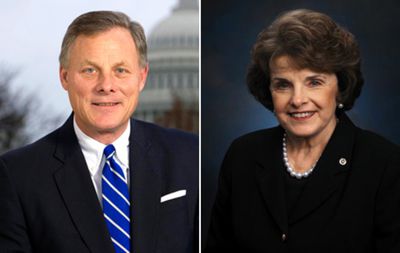Support for encryption legislation in the U.S. has flatlined and the push for changes in federal law following the San Bernardino shootings has petered out, according to sources in congressional offices, the administration and the tech sector (via Reuters).
On February 16, a U.S. federal judge ordered Apple to help the FBI to unlock the iPhone owned by Syed Farook, one of the shooters in the December 2015 attacks in San Bernardino that left 14 people dead.

The FBI asked Apple to create a version of iOS that would both disable passcode security features and allow passcodes to be entered electronically, allowing it to then brute force the passcode on the device.
Apple announced that it would oppose the order in an open letter penned by Tim Cook, who said the FBI's request would set a "dangerous precedent" with serious implications for the future of smartphone encryption.
Apple claimed the software the FBI asked for could serve as a "master key" able to be used to get information from any iPhone or iPad - including its most recent devices - while the FBI claimed it only wanted access to a single iPhone.
Apple's dispute with the FBI ended on March 28, after the government found an alternate way to access the data on the iPhone through the help of "professional hackers" and withdrew the lawsuit as a result.
During the controversy, a Senate Intelligence Committee encryption bill was announced by committee leaders Richard Burr and Dianne Feinstein, which aimed to force companies to provide "technical assistance" to government investigators seeking locked data.
A released draft of the encryption bill in April revealed the scope of the proposed legislation, which was heavily criticized by security experts and the wider technology community, and described variously as "absurd", "technically inept", and "dangerous".
An open letter expressing "deep concerns" about the draft bill was subsequently signed by four coalitions representing Apple, Microsoft, Google, Amazon, and other major tech companies. At the same time, the White House chose not to offer public support for the legislation, and the administration remained deeply divided on the issue.
The CIA and NSA were also ambivalent, according to several current and former intelligence officials, because agency officials feared any new law would interfere with their own encryption efforts.
Now, despite Burr repeatedly insisting that legislation is imminent, no timeline exists for the bill, Democrats and Republicans on the Intelligence Committee have apparently backed away from the issue, and the political will to support its advance no longer appears to exist.
Despite the change in the political landscape, however, the FBI remains adamant that litigation over the encryption of mobile devices will continue.
In a briefing with reporters earlier this month, FBI director James Comey called encryption an "essential tradecraft" of terrorist organizations like ISIS, suggesting that the debate over whether the government can compel tech companies to unlock personal devices in the interest of national security is far from over.
Note: Due to the political nature of the discussion regarding this topic, the discussion thread is located in our Politics, Religion, Social Issues forum. All forum members and site visitors are welcome to read and follow the thread, but posting is limited to forum members with at least 100 posts.






















